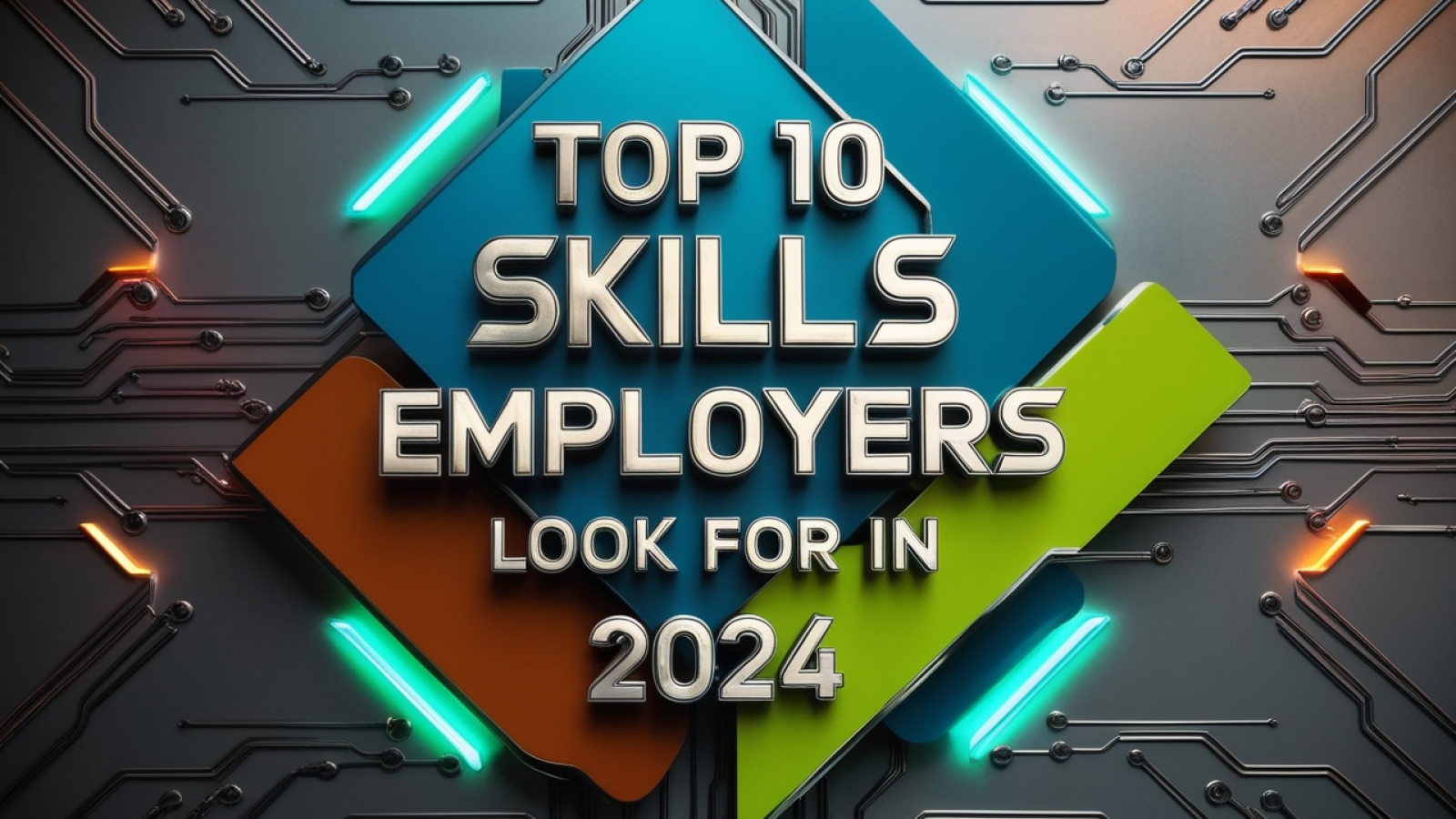In the rapidly evolving job market, employers are constantly seeking candidates with the right skill set to drive their organizations forward. As we enter 2024, certain skills have become more valuable than ever, reflecting the latest trends and technological advancements. Here are the top 10 skills employers look for in 2024, along with tips on how you can develop and showcase these abilities to potential employers.
1. Digital Literacy
Digital Literacy involves understanding and effectively using digital tools and platforms. With the increasing digitization of workplaces, this skill is essential across all industries.
a. Why It’s Important
Employers need employees who can navigate digital environments, utilize software applications, and understand emerging technologies.
b. How to Develop It
Take online courses on platforms like Coursera and Udemy to improve your knowledge of common software tools and digital platforms. Stay updated with the latest tech trends by following tech news and blogs.
c. How to Showcase It
Highlight your proficiency with specific digital tools on your resume. Mention relevant projects or tasks where you effectively used digital tools in your job applications and during interviews.
2. Data Analysis
Data Analysis skills are critical as businesses increasingly rely on data to make informed decisions. This involves interpreting complex datasets to extract meaningful insights.
a. Why It’s Important
Employers value data-driven decision-making, which requires employees who can analyze and interpret data accurately.
b. How to Develop It
Learn data analysis tools such as Excel, SQL, Python, and R. Online courses and certifications in data science and analytics can be beneficial.
c. How to Showcase It
Include any relevant data analysis projects or experience on your resume. Provide specific examples of how your data analysis contributed to business decisions or outcomes.
3. Critical Thinking
Critical Thinking involves analyzing situations, identifying problems, and developing effective solutions. This skill is crucial for making strategic decisions and improving processes.
a. Why It’s Important
Employers need employees who can think critically to solve complex problems and make sound decisions.
b. How to Develop It
Engage in activities that challenge your thinking, such as puzzles, strategic games, and reading. Consider taking courses on logic and problem-solving.
c. How to Showcase It
Describe scenarios where you successfully used critical thinking to solve problems or improve processes in your previous roles during interviews and on your resume.
4. Emotional Intelligence (EQ)
Emotional Intelligence is the ability to understand and manage your own emotions, as well as recognize and influence the emotions of others.
a. Why It’s Important
High EQ is associated with better teamwork, communication, and leadership skills, all of which are valuable to employers.
b. How to Develop It
Practice active listening, empathy, and self-awareness. Consider taking courses or reading books on emotional intelligence and interpersonal skills.
c. How to Showcase It
Provide examples of how your emotional intelligence has helped you resolve conflicts, lead teams, or improve workplace relationships.

5. Adaptability
Adaptability refers to your ability to adjust to new conditions and challenges. This skill is increasingly important in a world characterized by rapid changes and uncertainties.
a. Why It’s Important
Employers need employees who can quickly adapt to changes, whether it’s new technology, shifts in market conditions, or internal organizational changes.
b. How to Develop It
Expose yourself to new experiences and challenges. Stay open-minded and flexible in your approach to work and life.
c. How to Showcase It
Highlight instances where you successfully adapted to changes in your previous jobs. Mention your willingness to learn and embrace new challenges during interviews.
6. Creativity
Creativity is the ability to think outside the box and develop innovative solutions to problems. It is a valuable skill in any role that involves problem-solving and innovation.
a. Why It’s Important
Employers value creative thinkers who can bring fresh ideas and solutions to the table, helping to drive innovation and growth.
b. How to Develop It
Engage in activities that stimulate your creativity, such as brainstorming sessions, creative writing, or artistic pursuits. Consider taking courses on creative thinking.
c. How to Showcase It
Share examples of creative solutions you have implemented in your previous roles. Highlight projects where your innovative thinking led to successful outcomes.
7. Communication Skills
Communication Skills encompass both verbal and written abilities to convey information effectively and efficiently.
a. Why It’s Important
Clear communication is essential for teamwork, customer service, and leadership. Employers seek candidates who can articulate ideas and instructions well.
b. How to Develop It
Practice your writing and speaking skills through public speaking, writing blogs or articles, and participating in discussions or debates.
c. How to Showcase It
Demonstrate your communication skills through a well-written resume and cover letter. During interviews, articulate your thoughts clearly and provide examples of effective communication in your previous roles.
8. Leadership
Leadership involves guiding and motivating a team towards achieving goals. It is a crucial skill for managerial roles but is also valuable for individual contributors.
a. Why It’s Important
Employers look for individuals who can lead projects, mentor colleagues, and contribute to a positive work environment.
b. How to Develop It
Seek out leadership opportunities, such as leading a project or mentoring a colleague. Take courses on leadership and management.
c. How to Showcase It
Highlight leadership roles and achievements on your resume. Discuss your leadership experiences and the impact you had on your team or projects during interviews.
9. Project Management
Project Management involves planning, executing, and closing projects efficiently. It includes skills like time management, resource allocation, and risk management.
a. Why It’s Important
Employers need individuals who can manage projects effectively to meet deadlines and achieve objectives.
b. How to Develop It
Learn project management methodologies like Agile, Scrum, or PMP. Gain practical experience by managing small projects or tasks.
c. How to Showcase It
Include any project management experience and certifications on your resume. Discuss your approach to managing projects and your success stories during interviews
10. Cybersecurity Awareness
Cybersecurity Awareness is the understanding of the importance of protecting information systems and data from cyber threats.
a. Why It’s Important
With the increasing prevalence of cyberattacks, employers need employees who are aware of cybersecurity best practices to protect company data.
b. How to Develop It
Take cybersecurity courses and stay informed about the latest threats and protection measures. Follow cybersecurity news and blogs.
c. How to Showcase It
Highlight any cybersecurity training or certifications you have obtained. Mention your awareness and practice of cybersecurity measures in your previous roles.
Conclusion
In 2024, employers are seeking a combination of technical and soft skills to navigate the complexities of the modern workplace. By developing these top 10 skills—digital literacy, data analysis, critical thinking, emotional intelligence, adaptability, creativity, communication, leadership, project management, and cybersecurity awareness—you can enhance your employability and set yourself up for long-term career success. Remember to continuously update your skills, stay adaptable, and showcase your abilities effectively to potential employers.




Add a Comment